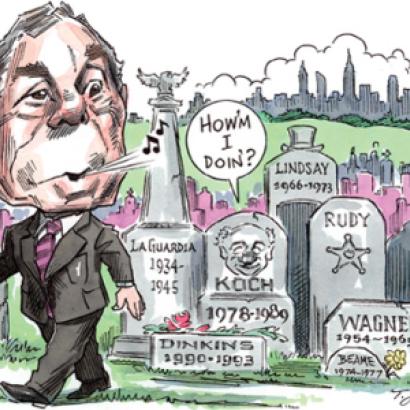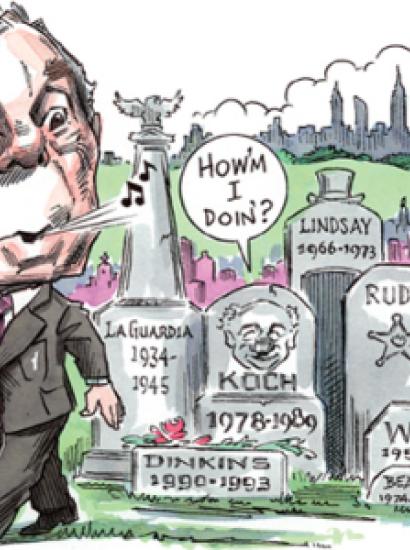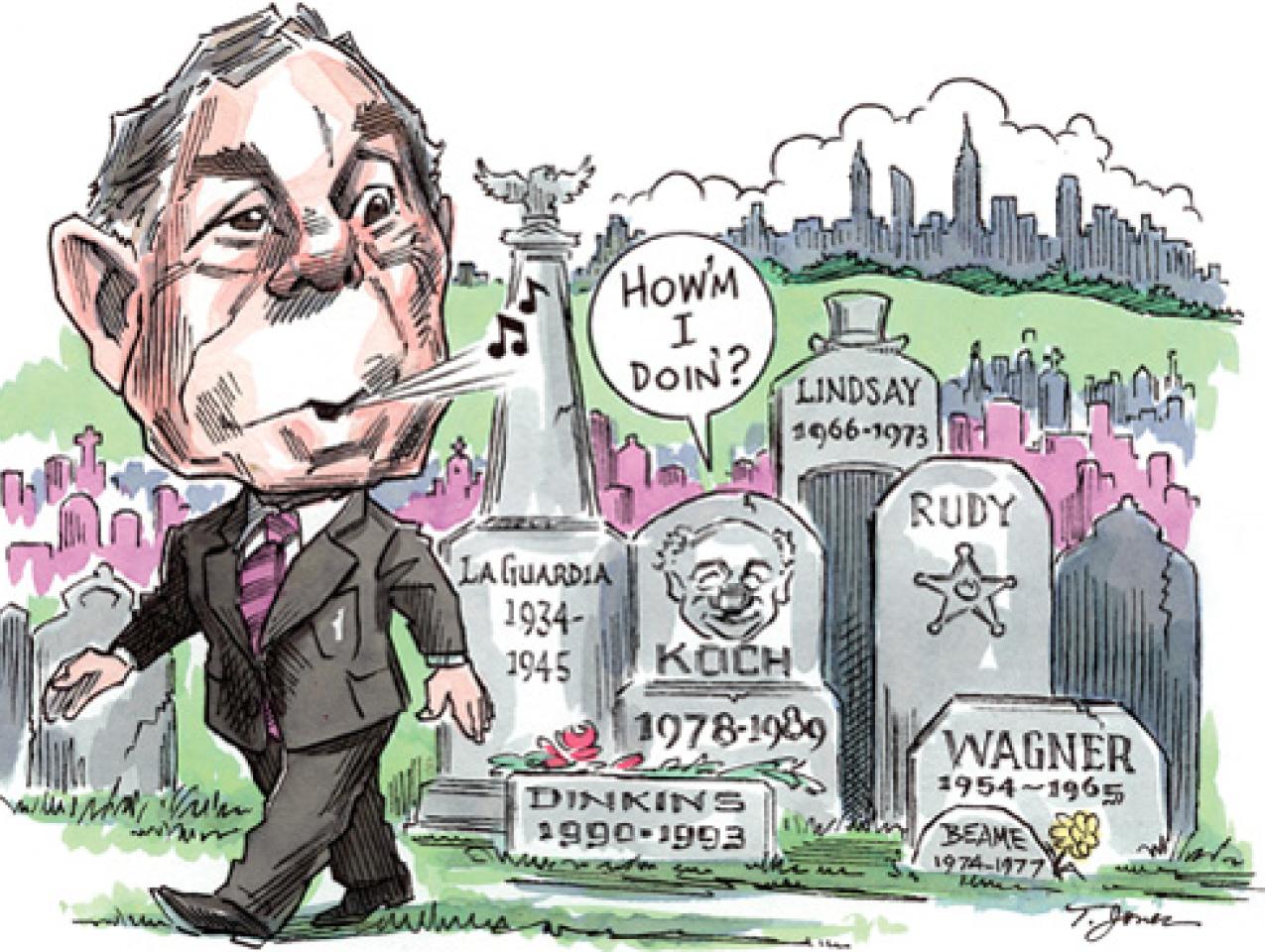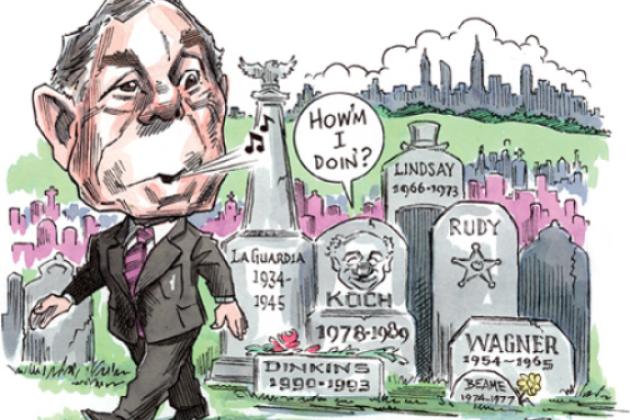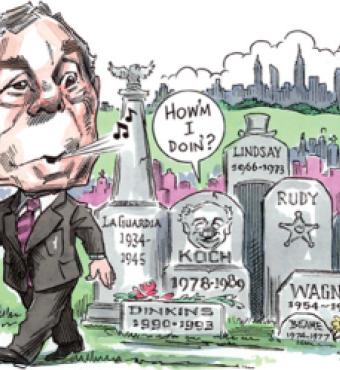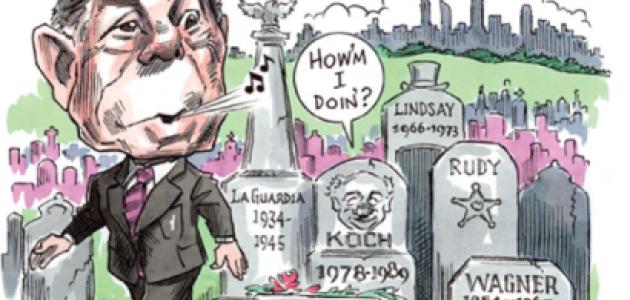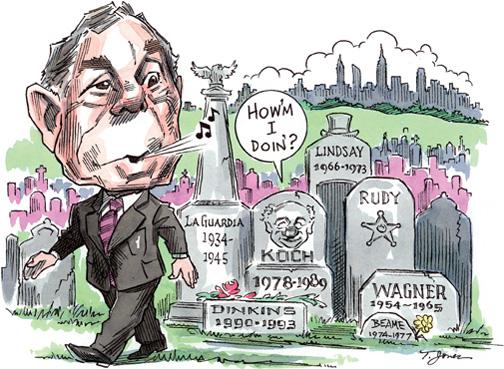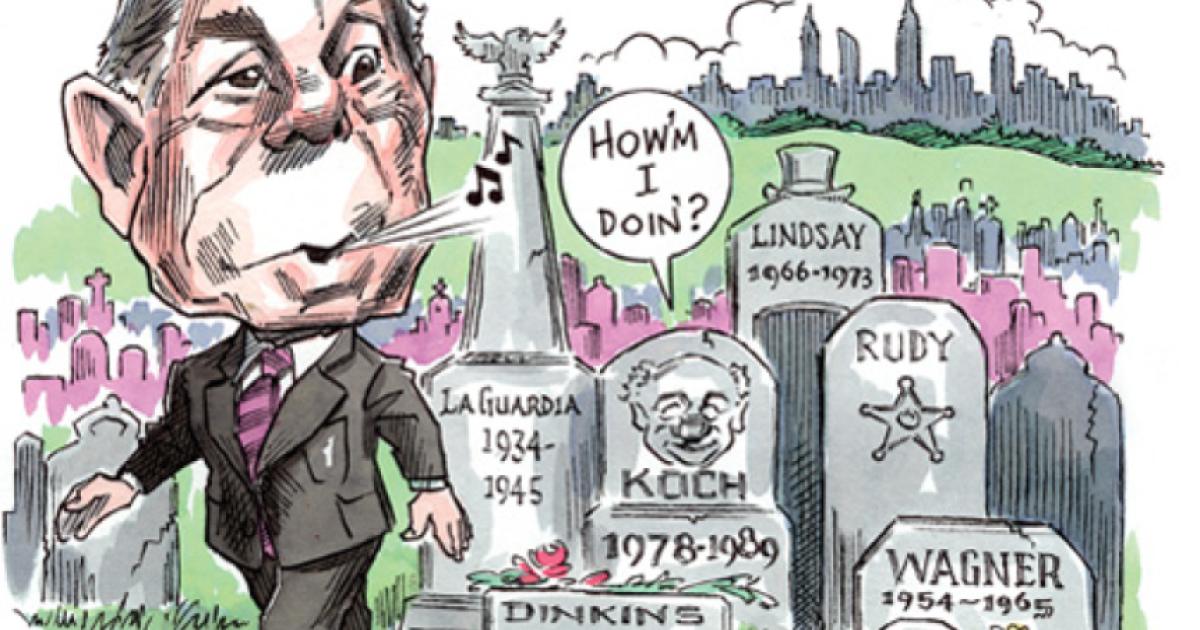- Campaigns & Elections
- The Presidency
- Politics, Institutions, and Public Opinion
And so another New York mayor succumbs to the city hall jinx. Mayor Michael Bloomberg announced a few months ago that he would not seek the nomination for the presidency. Having been elected mayor twice, he is legally barred from a third term. What is Bloomberg, a multibillionaire, going to do for an encore?
It remains to be seen how Bloomberg’s friendliness with candidate Barack Obama plays out, but the history of the New York City mayoralty suggests that the incumbent ’s political career ends the day he leaves city hall.
Fiorello H. LaGuardia, John F. Hylan, Jimmy Walker, Joseph V. McKee, John P. O’Brien, William O’Dwyer, Vincent Impelliteri, Robert F. Wagner, Ed Koch, Abe Beame, John V. Lindsay —largely forgotten names. Other New York mayors ended up nowhere as far as political preferment was concerned. Is there something about that job that is political poison? It doesn ’t matter whether the occupant of city hall is a populist reformer like LaGuardia or a squeaky-clean Republican like Lindsay or a Tammany hack like O ’Brien. (Asked at a press conference whom he was going to appoint as fire commissioner, O ’Brien replied, “They haven’t told me yet.”) When their terms of office are finished, so are they.
The end of the mayors’ elective political careers doesn’t mean that they go on the dole or become unemployed. Sometimes they get appointive jobs like a judgeship, but they usually slip back into an unaccustomed obscurity. Bloomberg might even consider creating his own United Nations to compete with the existing institution, whose failures have been brilliantly chronicled by former U.S. ambassador John Bolton.
LaGuardia is a good example of how the Big Apple’s mayoral job has become the poison pill of U.S. politics. Here is the man who helped finish off Tammany Hall, who ran successfully three times on nine different party tickets, and who was a showman, a wit, scandal-free. Yet President Franklin D. Roosevelt ignored his pleas to let him get into World War II as a general, a colonel, a cabinet member, anything. LaGuardia had been a popular congressman. Had he stayed in Congress, who knows where he might have landed? Instead, he became mayor of New York and got an airport named after him.
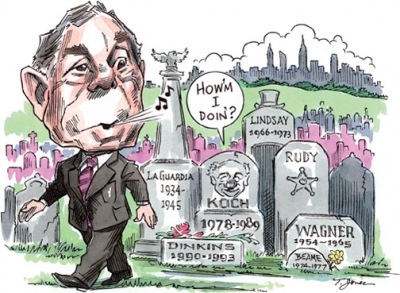
Does this jinx hover over the mayors of other big cities? Tom Bradley is Los Angeles ’s forgotten man, good enough to be a mayor but not a governor of California. On the other hand, Hubert Humphrey went from mayor of Minneapolis to senator from Minnesota, vice president under Lyndon Johnson, and a presidential candidate against Richard Nixon in 1968. But then, compared to New York, Minneapolis was a shining city on a hill. Senator Richard Lugar was mayor of Indianapolis, a city with no real urban problems. Pete Wilson went from San Diego mayor to senator and then governor of California; Dianne Feinstein went from San Francisco mayor to U.S. senator. Perhaps there are other exceptions but they can ’t be significant.
Some years ago, Jesse Jackson was supposedly considering running for mayor of Washington, D.C., against Marion Barry on the grounds that he needed an elective job before he could think seriously of running for president and that as mayor of the nation ’s capital he would have a bully pulpit. But he never ran—smart man.
There may be something generally lethal about urban politics, and to a greater degree in New York City. More so than any other officeholder in the United States, a New York mayor makes at least one enemy a day, whether because of patronage denied or issue ignored. The mayor is a permanent target for investigative journalists, and in a city like New York there is always something to investigate, whether it ’s the police or the fire department, judges, the medical examiner, jail wardens. Few other cities get the daily scrutiny from the local media given to New York, and with reason. New York is the country ’s cultural center. The media and book publishing giants, the stock exchanges, the big banks, and corporate headquarters are concentrated in a single borough: Manhattan.
No matter what the mayor does—about garbage pickup, sewage, schools, the homeless, crime, traffic, the environment —he will offend powerful constituencies. New York City has more of everything—labor lobbies, economic lobbies, liberation theologians, Hasidim, Catholics, pro-choicers and pro-lifers, gays and homophobes, lesbians and straights, and real estate interests —and a reputation for being the modern Sodom and Gomorrah. In New York, everybody is a constituency —a lobby—as Mayor Bloomberg has discovered.
Can a big-city mayor achieve a national reputation? Ed Koch did, as did LaGuardia —but somehow he can’t become an elected national figure. At least, he hasn’t so far. Nor has Rudy Giuliani, not for lack of trying in the current presidential campaign.
John N. Garner, vice president during Franklin D. Roosevelt’s first two terms, is reported to have said (in the blipped version) that his job wasn ’t worth “a pail of warm spit.” I wonder what he would have said about the New York mayoralty.








